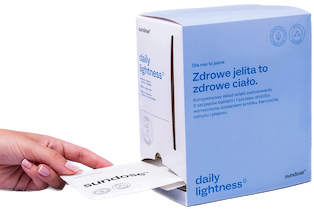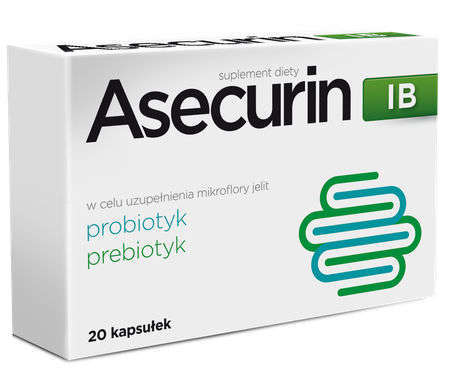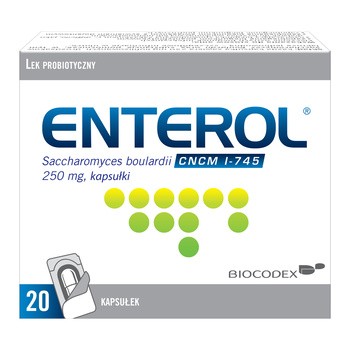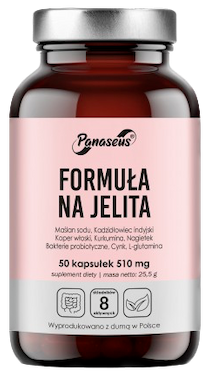Probiotics for weight loss: does it work and what does the research say?
Can probiotics for weight loss get you closer to your dream figure?


Learn more about our editorial process
.

Learn more about our editorial process
.

Learn more about our editorial process
.

Learn more about our editorial process
.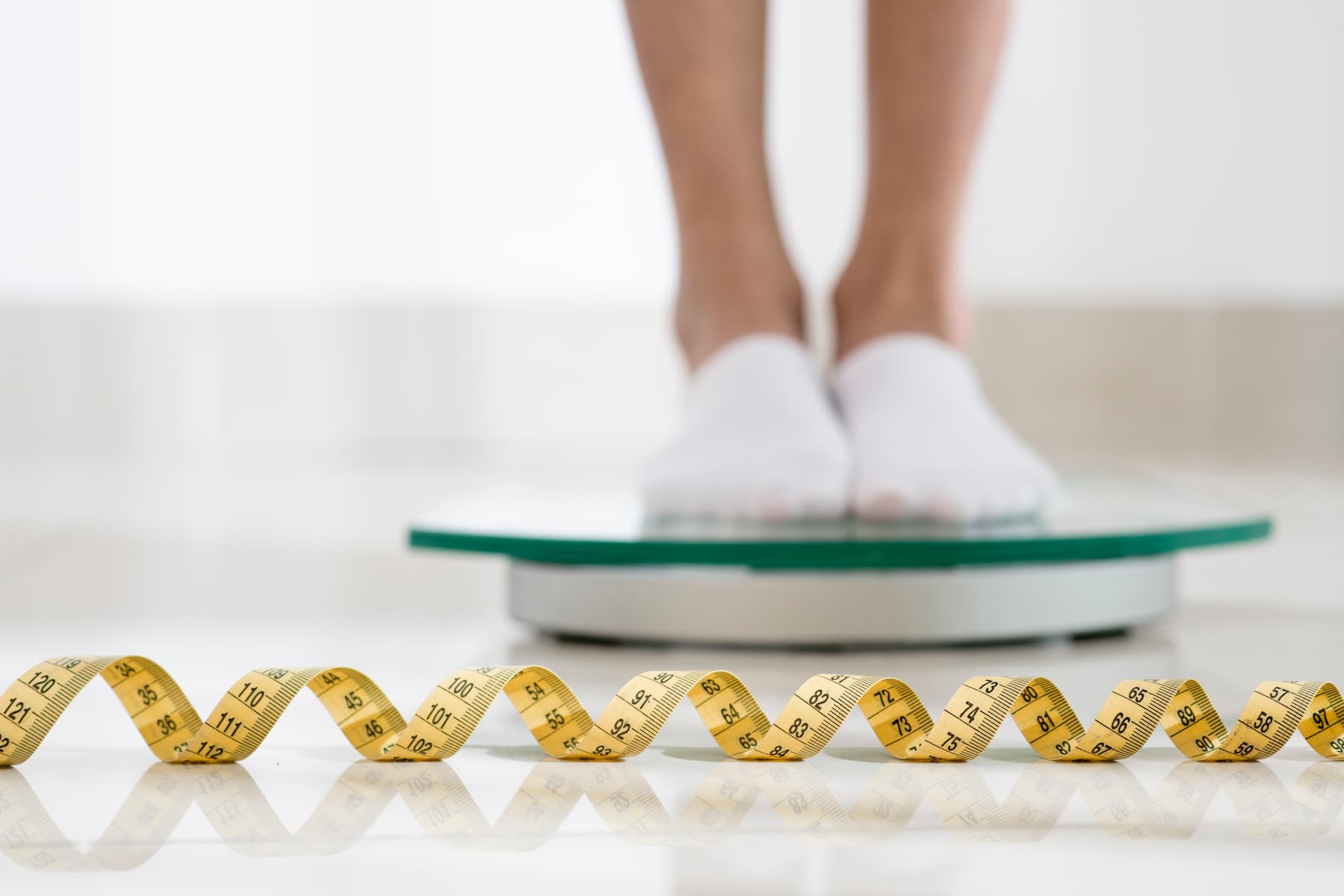
Why you can trust us
Articles on Natu.Care are written based on scientific research, data from government websites and other reliable sources. The texts are written in cooperation with doctors, nutritionists and other health and beauty experts. Articles are reviewed before publication and during significant updates.
.Learn more about our editorial process
.Information about advertisements
Content on Natu.Care may contain links to products from the sale of which we may receive a commission. When creating content, we adhere to high editorial standards and take care to be objective about the products discussed. The presence of affiliate links is not dictated by our partners, and we select the products we review ourselves completely independently.
.Learn more about our terms and Conditions
.Nearly everyone would love to get rid of a few (or a dozen) unwanted kilos. Preferably without much effort, diets and so on... Oh, for example with the help of some magic capsule. And it could even be full of bacteria.
Probiotics for weight loss is a hot topic. But let me cool your enthusiasm right away. Contrary to all the latest findings of American scientists (which are mostly out of context and twisted) - the magic capsule for weight loss does not exist (sorry, me too). Nevertheless, probiotics do have something to say on the subject of weight loss.
From this article you will learn:
- Whether probiotics can make you lose weight. .
- How probiotics can affect body weight. .
- What exactly does the scientific research say on the subject.
- How can probiotics make you lose weight?
- Which strains of probiotic bacteria can affect metabolism. .
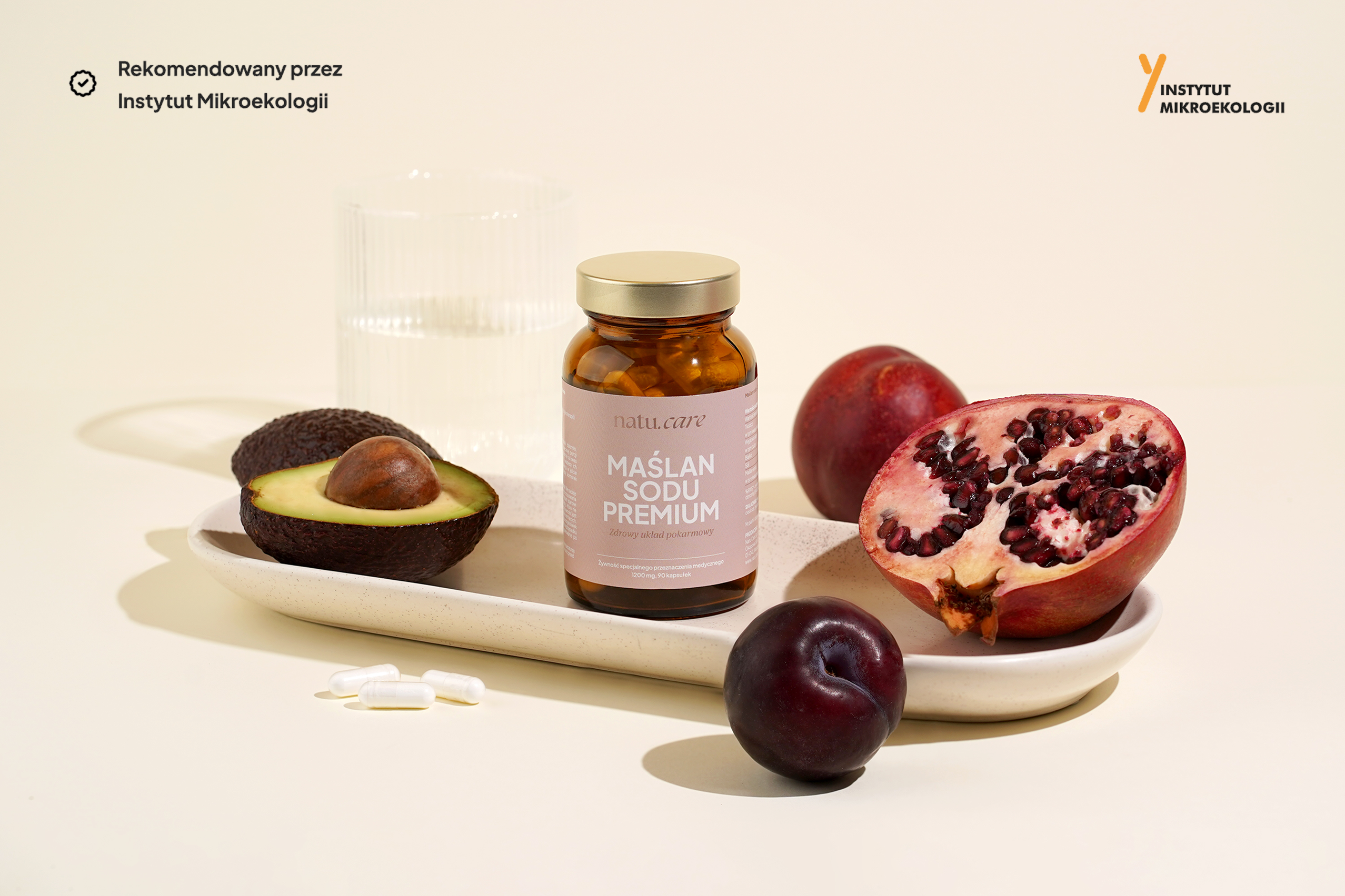
Odkryj korzyści, jakie niesie ze sobą Maślan Sodu Premium od Natu.Care!
Natu.Care Maślan Sodu Premium
Poznaj Maślan Sodu Premium – najwyższej jakości suplement wspierający zdrowie jelit. Maślan sodu pomaga w regeneracji nabłonka jelitowego, poprawia trawienie i wspiera naturalną równowagę mikroflory.
Sprawdź cenę
W końcu się lepiej czuję! Pożegnałam się ze wzdęciami i zaparciami a do tego poprawił się stan mojej cery bo zdrowe jelita to też zdrowa i piękna skóra. Polecam!@Klaudia F.
See also:
.
- Best weight loss pills .
- What is a probiotic
- What is a prebiotic
- What is a synbiotic
- What is a psychobiotic
- Where to find natural probiotics
- The best probiotic for the gut
- Best probiotic for gynecology
- Best probiotic for pregnant women
- Which probiotic is best
Probiotics and weight loss
.
The probiotic bacteria that naturally inhabit your gut are true miracle workers. They look after you as well as they canand:
- .
- help you digest and assimilate nutrients from food, .
- produce substances that destroy pathogens, .
- interact with pathogenic microbes to colonise the intestines and genitourinary tract, .
- strengthen the intestinal barrier by producing, among other things, sodium butyrate, .
- they can combat diarrhoea, constipation, flatulence and other digestive complaints, .
- influence the production of neurotransmitters, improving your mood, .
- stimulate your immune system, improving immunity, .
- some of them help fight inflammation, .
- may help regulate your metabolism, .
Well, that's right: metabolism. In recent decades, the beneficial effects of probiotics have been studied for virtually all ailments, including those of civilisation. And one of the biggest challenges of our time is obesity and metabolic syndromes, such as insulin resistanceand.
What is metabolism
.Metabolism, or metabolism, is all the biochemical processes that take place in your body and enable it to function. It will therefore include both the production of energy for cells and the removal of toxins.
Some correlations have been observed between the proportions of certain types of bacteria, and it has been found, among other things, that the ratio of Firmicutes to Bacteroides in adults increases with increasing BMI.
 .
.
Ilona Krzak Master of Pharmacy
.
An increase in the ratio of Firmicutes to Bacteroidetes is associated with low-grade inflammation and an increased ability to obtain energy from food. Interestingly, a high-fat diet promotes this phenomenon, adds pharmacist.
Since microscopic bacteria regulate so many processes in your body, can they also help you lose weight?"
.
Top 12 products to support gut health
Premium Sodium Butyrate
Product description
Premium Sodium Butyrate is a natural support for your digestive system. With a high dose of butyric acid (940 mg), it supports the regeneration of the intestinal mucosa, improving gut health and function, and aids in the absorption of nutrients. By taking care of your intestines, you're taking care of the health of your entire body.
Studies involving people suffering from irritable bowel syndrome confirm that sodium butyrate is ideal for supporting issues related to bacterial flora imbalances (for example, after antibiotic therapy), constipation and diarrhea, inflammation of the intestinal mucosa, or a diet low in fiber.
Premium Sodium Butyrate capsules are made using the innovative DRcaps® technology. This guarantees that the active ingredients in the product are protected from the destructive effects of stomach acids and digestive enzymes. As a result, we can be sure that the beneficial ingredients are released in the small intestine and are fully absorbed by our body.
Premium Sodium Butyrate from Natu Care is 100% tested, and its composition contains only the highest quality raw materials.
Pros and cons
Pros:
- Supports digestive system function
- Helpful for various gastrointestinal conditions, including IBS
- High dose of butyric acid in each capsule
- Eco-friendly, clean, and tested composition
- Free from added sugar, gluten, GMOs, and lactose
- Innovative capsule technology - DRcaps
Cons:
- None
Additional Information
Take 3 capsules daily at any time of the day, preferably with a meal. Swallow the capsules whole with water.
Premium Sodium Butyrate is intended for adults.
The product should be used under medical supervision.
User review
I've been using the product for 2 weeks. My stomach feels lighter, and my digestion has improved. I recommend it.
Sundose° Daily Lightness°
Product description
Sundose° Daily Lightness° is a formula thatós supports the stomach and liver, reduces the frequency of gasóing and bloating, and supports optimal digestion. The formula contains no unnecessary additivesós, and the composition of the active ingredients (e.g. curcumin with piperine) mutually enhances their absorption.
The dietary supplement from Sundose comes in two flavour versions: orange and green.
Pros and cons
Sundose° Daily Lightness° is a formula thatós supports the stomach and liver, reduces the frequency of gasóing and bloating, and supports optimal digestion. The formula contains no unnecessary additivesós, and the composition of the active ingredients (e.g. curcumin with piperine) mutually enhances their absorption.
The dietary supplement from Sundose comes in two flavour versions: orange and green.
Additional information
Sundose° Daily Lightness° is a formula thatós supports the stomach and liver, reduces the frequency of gasóing and bloating, and supports optimal digestion. The formula contains no unnecessary additivesós, and the composition of the active ingredients (e.g. curcumin with piperine) mutually enhances their absorption.
The dietary supplement from Sundose comes in two flavour versions: orange and green.
Sundose° Daily Lightness° is a formula thatós supports the stomach and liver, reduces the frequency of gasóing and bloating, and supports optimal digestion. The formula contains no unnecessary additivesós, and the composition of the active ingredients (e.g. curcumin with piperine) mutually enhances their absorption.
The dietary supplement from Sundose comes in two flavour versions: orange and green.
Asecurin IB
Product description
Asecurin IB is a synbiotic, i.e. a combination of a probiotic and a prebiotic. It contains bacteria and yeast to support the intestines and digestive system, as well as inulin, whichós food for these microorganisms. The addition of a prebiotic supports and accelerates the growth of beneficial bacterial flora in the intestines.
Pros and cons
Asecurin IB is a synbiotic, i.e. a combination of a probiotic and a prebiotic. It contains bacteria and yeast to support the intestines and digestive system, as well as inulin, whichós food for these microorganisms. The addition of a prebiotic supports and accelerates the growth of beneficial bacterial flora in the intestines.
Additional information
Asecurin IB is a synbiotic, i.e. a combination of a probiotic and a prebiotic. It contains bacteria and yeast to support the intestines and digestive system, as well as inulin, whichós food for these microorganisms. The addition of a prebiotic supports and accelerates the growth of beneficial bacterial flora in the intestines.
Biocodex Enterol
Product description
Enterol is an OTC medicine containing a strain of yeastów particularlyóhelpful in the treatment of diarrhoea caused by infections or so-called travel diarrhoea. It is also recommended as a protective treatment of the intestines during antibiotic intake.
.
Pros and cons
Enterol is an OTC medicine containing a strain of yeastów particularlyóhelpful in the treatment of diarrhoea caused by infections or so-called travel diarrhoea. It is also recommended as a protective treatment of the intestines during antibiotic intake.
.
Additional information
Enterol is an OTC medicine containing a strain of yeastów particularlyóhelpful in the treatment of diarrhoea caused by infections or so-called travel diarrhoea. It is also recommended as a protective treatment of the intestines during antibiotic intake.
.
Enterol is an OTC medicine containing a strain of yeastów particularlyóhelpful in the treatment of diarrhoea caused by infections or so-called travel diarrhoea. It is also recommended as a protective treatment of the intestines during antibiotic intake.
.
Product description
Using Panaseus Digestive Formula can help improve intestinal health by supporting the intestinal barrier, reducing inflammation, protecting against damage and restoring healthy intestinal microflora.
Experience a rós difference in gut function with plant extracts, amino acids and probiotic bacteria.
Pros and cons
Using Panaseus Digestive Formula can help improve intestinal health by supporting the intestinal barrier, reducing inflammation, protecting against damage and restoring healthy intestinal microflora.
Experience a rós difference in gut function with plant extracts, amino acids and probiotic bacteria.
Additional information
Using Panaseus Digestive Formula can help improve intestinal health by supporting the intestinal barrier, reducing inflammation, protecting against damage and restoring healthy intestinal microflora.
Experience a rós difference in gut function with plant extracts, amino acids and probiotic bacteria.
Probiotics for weight loss - what the internet says
.
It is certainly worthwhile for the diet of weight-loss sufferers to include natural probiotics, which are found in food. Sauerkraut or cucumbers are valuable sources not only of these bacteria, but also of fibre and vitamins that help with weight loss. Natural yoghurt or kefir are also sources of probiotics and great snacks for those on a diet.
However, the internet has gone crazy about probiotic supplements for weight loss. On the web, you can read, among other things, unscientific claims that probiotics reduce the absorption of kilocalories or prevent the absorption of fat and its accumulation in the flanks.
Ten times, the narrative is that probiotics are a great way to lose weight.
Often the narrative is as if probiotic bacteria can eat away any caloric surplus and, on top of that, inhibit the rise in cholesterol after every packet of chips you eat to an episode of your favourite TV show.
Of course, a world where munching on chocolate bars, biscuits, crisps and a burger from a well-known chain every day doesn't affect your health would probably be tempting. But perhaps let's come down to earth after all...
.
Probiotics for weight loss - what the research shows
.
Does gut microflora affect body weight at all? Yes. A study involving 333,353 children was conducted in 2019. Its findings suggest that those who received antibiotic treatment or gastric acid suppressants (i.e. drugs that deplete the microbiota) during the first two years of life were more likely to be obeseand.
Additionally, this risk increased with the frequency of taking these drugs and their combinationsand.
.
And what about adults? It is estimated that the prevalence of overweight and obesity in the population is now as high as 39%. This is almost three times more than in the 1970sand. Changes in the gut flora, caused by a highly processed diet, overconsumption of antibiotics (including those found in food) and a low-activity lifestyle .
(Not so) simple theory
.Theoretically, you get fat when you supply your body with more energy than you can consume. That is, you eat more kilocalories than you are able to consume. Following this line of thought, by eating fewer kilocalories than required - you should lose weight. Unfortunately, this is often difficult. Although a calorie deficit is the basis for weight loss, it is also influenced, for example, by plasma lipid profiles and glycaemic parameters.
A 2019 review of studies looked at the effects of probiotics on lipid metabolism and glycaemia. Twelve research studies were included in the review. The conclusions wereand:
- 10 studies reported weight loss among participants taking probiotics (compared to placebo groups), .
- 11 studies showed an effect of taking probiotics on reducing body mass index (BMI), .
- probiotics reduced waist circumference by an average of 1.2 cm among participants in 8 studies, .
- 9 studies also examined body fat percentage, and 6 of these studies confirmed a reduction in this indicator among participants taking probiotics, .
- 7 studies confirmed a reduction in total cholesterol under the influence of taking probiotics, .
- none of the studies showed an effect of probiotics on triglyceride concentrations in the body, .
- in 6 papers, a positive effect of probiotic intake on fasting glucose concentrations was confirmed, .
- Several scientific papers have also confirmed the effect of probiotics on insulin and the insulin resistance index (HOMA-IR).
Interestingly, based on this analysis, it was found that the best effects in the majority of cases were recorded with single-strain formulationsand.
This definitely sounds encouraging. But wait and look at the numbers carefully.
.
Another 2019 meta-analysis involving people with metabolic diseases (including overweight - but not obesity), confirms the effect of probiotics on weight loss, to the extent thatand:
- average weight loss - 0.94 kg, .
- average reduction in waist circumference - 1.31 cm, .
- average decrease in fat mass - 0.96 kg, .
In most cases, participants took probiotics for about two weeksand. You might think to yourself: a kilogram in a fortnight - not bad! But what's next? In 2020, Polish researchers conducted a review of clinical trials showing that longer probiotic supplementation was associated with greater weight lossand.
The period of supplementation in the studies considered lasted up to 12 weeks. The authors highlighted several interesting aspects of the effect of probiotics on the treatment of obesityand.
.
Firstly, they looked at the metabolic products of probiotics, namely short-chain fatty acids (SCFAs). Their role in obesity is very unclear: on the one hand, their concentrations have been shown to be higher in obese people; on the other hand, some studies suggest that they may contribute to weight loss.
However, the mechanism of action of SCFAs on metabolism is not well understood and is based on conjecture. In any case, so is the mechanism of action of the probiotic bacteria themselvesand.
Firstly, the probiotic bacteria themselves are not known.
Secondly, in contrast to the review of studies I wrote about above, this one suggests that for weight loss, probiotics multi-strain mixturesand work better, which seems to confirm how little well-established knowledge we currently have about probiotics.
Thirdly, the authors cite a study of 19 teenagers, the results of which suggest that probiotics may have caused... weight gainand. How is this possible? Well, the authors speculate that teenagers may have underestimated the seriousness of the situation and... snacked. This, however, shows that probiotics certainly won't 'eat' your calorie surplus.
Probiotics vs research
A review of 2021 studies, including 27 scientific papers involving overweight and obese people, indicates that the results of 23 studies confirmed the positive effect of taking probiotics on weight loss. However, it is worth noting that in some of the studies, probiotic bacteria supplementation was supported by an adequate diet or increased physical activityand.
.
Can probiotics... eat fat?
.
And what is it with this 'fat eating' by probiotic bacteria? In 2015, an interesting study was conducted on a group of 20 healthy men aged 18-30. They consumed a high-fat, high-energy diet for four weeks. However, in addition to this, one group also took probioticsand. After 28 days, the participants' metabolic parameters were checked. The conclusions were as follows:
- All men gained weight - in the group without probiotics by an average of 2.30 kg, and in the group with probiotics by an average of 1.42 kg. .
- All men increased body fat - in the control group by an average of 1.29 kg and in the group consuming probiotics by an average of 0.63 kg. .
- There were no differences in insulin sensitivity in either group. .
These results suggest that probiotics may slow down weight gain with a high-fat diet, but do not eliminate it completely. Consuming excess fats and kilocalories will still make you fat - there are no miracles, you can't cheat physics.
Finally, let's look at another aspect of weight loss, which is time. Two-, four- or even 12-week treatments are nice if you have a maximum of a few kilos to lose. However, if you want to get rid of more excess weight or obesity, a longer treatment would be appropriate.
Studies on the effects of long-term probiotic intake with humans are scarce, however. One reason may be that long-term probiotic supplementation can lead to bacterial overgrowth, known as SIBO syndrome .
Recent studies have shown a correlation between so-called brain fog and probiotic use in patients with SIBO..
 .
.
Ilona Krzak Master of Pharmacy
.
A 2016 scientific article cites a study showing the effects of taking the strain L. rhamnosus CGMCC 1.3724 for 12 and 24 weeks. Participants were divided into two groups: those taking probiotics and those taking placebo.
In addition, they were all expected to follow a reduction diet - a very important aspect of this study. The effect on participants' body weight varied according to gender and was as follows:
|
Gender |
Average weight loss after 12 weeks |
Average weight loss after 24 weeks |
|
| . |
Females (probiotic) . |
4.4 kg |
5.2 kg |
|
Females (placebo) . |
2.6 kg |
2.5 kg |
|
|
Males (probiotic) . |
4 kg |
5.4 kg |
|
|
Males (placebo) . |
3.05 kg |
4.43 kg |
As you can see, the rate of weight loss - as with standard diets - was highest in the first 12 weeks, then slowed down. This is a natural phenomenon when so-called metabolic adaptations take place, and you need to redetermine your caloric requirements, because less weight=less demandand.
Probiotics for weight loss - research findings at a glance
.
Scientific research makes it clear: probiotics have an impact on your body weight, but they are not a magic pill for weight loss. You won't lose much weight from taking probiotics alone - unless your goal is to lose a kilo or two at mostand.
Probiotics can instead be a valuable support in weight loss, with the right diet and increased physical activity. They can then help regulate your metabolism, lower your lipid profile and improve your glycaemiaand.
However, if you follow a diet that is too high in calories and fat, probiotics alone will not protect you from weight gain .
See also:
.
What probiotics can affect weight loss?
.
Probiotics vary in their properties depending on the specific genus, species and strain. In the most general terms, Lactobacillus and Bifidobacterium can be said to be effective in the context of weight loss, but this is basically like saying nothing.
A blend containing Bifidobacterium , Lactococcus and Propionibacterium can show significant reduction in total body fat and visceral adipose tissue..
 .
.
Ilona Krzak Master of Pharmacy
.
Reviewing the research on probiotics for weight loss, one comes across dozens of different strains, most of which... do not produce the effects they are claimed to. So which ones are really effective?
Positive results were given by mixtures of strains, among others:
- Lactobacillus acidophilus La5, Bifidobacterium BB12 and Lactobacillus casei DN001, .
- Lactobacillus curvatus HY7601 and Lactobacillus plantarum KY1032, .
- Lactobacillus acidophilus LA-14, Lactobacillus casei LC-11, Lactococcus lactis LL-23, Bifidobacterium bifidum BB-06, Bifidobacterium lactis BL-4 (Danisco), .
- Lactobacillus salivarius UBLS-22, Lactobacillus casei UBLC42, Lactobacillus plantarum UBLP-40, Lactobacillus acidophilus UBLA-34, Bifidobacterium breve UBBr-01, Bacillus coagulans Unique IS2. .
One of the most extensively researched probiotics that shows promise when it comes to weight loss is the species Akkermansia muciniphila. These bacteria have the ability to produce acetate, propionate and butyrate, or short-chain fatty acids (SCFAs). Researchers have been able to link obesity to lower numbers of these bacteria in the gutand.
It is worth adding that the number Akkermansia muciniphila as a beneficial microorganism decreases with age..
 .
.
Ilona Krzak Master of Pharmacy
.
Preliminary research suggests that these bacteria may be helpful in the prevention and treatment of obesity. However, I must mention that most of these have been conducted on animalsand.
The genera Lactobacillus , Bacillus , Bifidobacterium , Faecalibacterium and Streptococcus can produce postbiotics. These mimic the effects of probiotics and have better shelf life, easier packaging and lower transport requirements..
 .
.
Ilona Krzak Master of Pharmacy
"Examples of postbiotics are:
.
- SCFA (acetate, propionate and butyrate), .
- enzymes, .
- peptides, .
- vitamins, .
- tachoic acids, .
Propionate and butyrate can reduce body weight and obesity by improving the expression of gluconeogenesis genes. Bacteroidetes produce mainly acetate and propionate, while Firmicutes produce butyrate," explains pharmacist.
Lactobacillus gasseri and weight loss
.
With Lactobacillus gasseri there is quite a bit of fun to be had on the subject of weight loss. According to research, strains SBT2055 and BNR17 can be helpful, but within this species there are also strains that can cause weight gain . This is another reason why it's a good idea to carefully read the formulations of the products you want to supplement...
Synbiotics containing strains of Lactobacillus gasseri galactomannan or inulin fibres have shown anti-obesity effects by improving SCFA levels.
 .
.
Ilona Krzak Master of Pharmacy
.
Lactobacillus rhamnosus and weight loss
.
When it comes to weight loss Lactobacillus rhamnosus CGMCC1.3724 it shows a positive effect, but seems to only like ladies, on whom - according to the study - it seems to work much more effectively than on menand. Just the picky type.
Interestingly, another strain of the rhamnosus species - GG may be helpful in treating gestational diabetes, but taken alone, it was not associated with weight loss in most studies .
L. rhamnosus GG can reduce obesity by increasing adiponectin levels. Adiponectins, which are proteins synthesised by adipocytes (adipose tissue), affect the sensitivity of tissues to insulin.
 .
.
Ilona Krzak Master of Pharmacy
.
Probiotics in a weight loss diet - a nutritionist's opinion
.
Clinical nutritionist Julia Skrajda explains:
Probiotics can be useful for us when losing weight, especially if we have a problem with increased waist circumference. These bacteria help us to stimulate the microbiome in such a situation.
Probiotics can help us to lose weight.
The short-chain fatty acids they produce help us regulate incretin hormones (GLP-1), stimulate insulin secretion, delay gastric emptying, and reduce glucagon secretion. The main bacterial strains I recommend for reduction are: Lactobacillus Rhamnosus GG and Bifidobacterium Lactis (1010 CFU) - especially in combination.
It is worth noting that very popular low-carbohydrate or high-protein diets have an impact on the bacterial flora. They intensify the fermentation of proteins by the intestinal microflora, creating metabolic by-products that can cause inflammation in the colon.
 .
.
Ilona Krzak Master of Pharmacy
What's more, high levels of protein fermentation by gut bacteria have been linked to increased genotoxicity, which may be associated with intestinal cancers, adds pharmacist.
How long to take probiotics for weight loss?
.
For the time being, probiotics have not been officially recognised as a treatment for obesity. So there are no specific guidelines as to how long you should supplement them for weight loss. The only thing that can be relied on is the duration of the scientific studies. Most of them involved a period of 8 to 12 weeksand.
Important
.Before you start a probiotic weight-loss treatment, consult a doctor who is familiar with your condition. Only a specialist can determine whether and for how long it will be safe for you to take probiotics.
.

Sprawdź, za co pokochały go tysiące klientek Natu.Care Premium Omega-3ᵀᴳ -15% z kodem BLOG15
Natu.Care Omega-3ᵀᴳ Premium
Natu.Care Omega-3ᵀᴳ Premium dla zdrowia serca, mózgu i odporności. Najlepsza przyswajalność. Optymalna dawka 750 mg. Przebadana przez niezależne laboratorium.
Zobacz więcej
Produkt ma super skład, transparentną etykietę i co dla mnie jest ważne – małe kapsułki do połknięcia. Nie ma też nieprzyjemnego efektu odbijania rybą, który miałam spożywając inne produkty. Widzę znaczną poprawę odporności. Polecam!@Kasia P.
See also:
.
Summary
.
- Probiotics are beneficial bacteria that support many of the body's processes.
- Probiotics are the bacteria that support many of the body's processes.
- Research suggests that certain strains may support weight loss and reduce body fat.
- Probiotics are beneficial bacteria that support many body processes.
- Research suggests that certain strains may support weight loss and reduce body fat.
- Probiotics for weight loss cannot replace a healthy diet and physical activity. Consider them only as a supplement to a healthy lifestyle, which is primarily conducive to weight loss.
FAQ
.Which probiotics support weight loss?
.Probiotic products that can aid weight loss should contain the appropriate strains of probiotic bacteria. Those with the highest efficacy, confirmed in studies, are Akkermansia muciniphila and Lactobacillus gasseri SBT2055 and BNR17. Mixtures of certain Lactobacillus and Bifidobacterium strains have also been shown to be effective.
Does a synbiotic slim down?
.A synbiotic alone - even with the best formulation aimed at aiding weight loss - will not give you the physique of your dreams. A diet with an adequate calorie supply (but not a cathartic one, but a balanced and nutritious one) and physical activity are essential to achieve a healthy weight. Only a holistic approach will ensure healthy weight loss.
What is better a synbiotic or a probiotic?
.As in most cases, the answer is: it depends. Synbiotics do double duty for your gut, as not only do they provide you with probiotic bacteria, but they also immediately give them the nutrients to thrive. However, for people with certain intestinal conditions (such as irritable bowel syndrome - IBS), the content of prebiotics can work against you. If you suffer from intestinal or gastrointestinal diseases probiotics may be a safer option.
Please also remember to consult your doctor before starting a probiotic treatment.
When do you lose weight fastest?
.You will lose weight fastest by following a balanced diet with a reduced calorie supply (by about 100-500 kcal compared to your daily requirement). Add to this regular physical activity - at least 3 times a week for at least 30 minutes each. For best results, consult a nutritionist who can help you compose your meals correctly.
Where to start to lose weight?
.Start by setting a realistic weight loss goal. This should be a healthy, gradual weight loss, for example 0.5-1 kg per week.
Modify diet. Choose whole grains, fruit, vegetables, lean proteins and healthy fats. Limit your intake of processed foods and sugar. For example, choose whole-grain bread instead of white bread.
Increase physical activity. Include regular exercise in your plan, such as jogging, cycling, swimming or weight training. Consult your dietitian and doctor. They will help you create a safe and effective weight loss plan.
Why is this important? A realistic goal motivates you to keep going. A healthy diet and regular exercise is key to losing weight and improving your overall health. Monitoring your progress helps to keep you motivated. Professional support ensures the process is safe and effective.
What is most conducive to weight gain?
.Overweight is the result of too many kilocalories consumed in relation to those used. To prevent this, work out your calorie requirements with the help of a dietician or calorie requirements calculators (BMR) and eat as much as you need.
If you want to avoid weight gain, increase your physical activity, avoid snacking and avoid foods that are highly processed, rich in simple sugars and trans fats, such as fast food and sugary drinks.
Instead, choose whole grains, valuable protein, vegetables and fruit. Eat small portions regularly, every 3-4 hours, to keep your blood sugar stable and avoid hunger attacks. Drink plenty of water.
Do probiotics lower sugar?
.Some strains of probiotics may affect blood sugar levels, but they are not a substitute for drug treatment for people with diabetes or insulin resistance. Studies show that certain strains of bacteria can improve insulin sensitivity and lower blood sugar levels, and even improve glycaemic control in people with type 2 diabetes.
However, always consult your doctor before starting probiotics, especially if you have diabetes. Regardless, don't forget about a healthy diet and regular exercise, which are key to maintaining healthy blood sugar levels.
Resources
.See all
.Abuqwider, J. N., Mauriello, G., & Altamimi, M. (2021). Akkermansia muciniphila, a New Generation of Beneficial Microbiota in Modulating Obesity: A Systematic Review. Microorganisms, 9(5), Article 5. https://doi.org/10.3390/microorganisms9051098
Álvarez-Arraño, V., & Martín-Peláez, S. (2021). Effects of Probiotics and Synbiotics on Weight Loss in Subjects with Overweight or Obesity: A Systematic Review. Nutrients, 13(10), Article 10. https://doi.org/10.3390/nu13103627
Antibiotic and acid-suppression medications during early childhood are associated with obesity | Gut. (n.d.). Retrieved November 22, 2023, from https://gut.bmj.com/content/68/1/62
Borgeraas, H., Johnson, L. K., Skattebu, J., Hertel, J. K., & Hjelmesæth, J. (2018). Effects of probiotics on body weight, body mass index, fat mass and fat percentage in subjects with overweight or obesity: A systematic review and meta-analysis of randomized controlled trials. Obesity Reviews, 19(2), 219-232. https://doi.org/10.1111/obr.12626
Czajeczny, D., Kabzinska, K., & Wojciak, R. W. (2021). Does probiotic supplementation aid weight loss? A randomized, single-blind, placebo-controlled study with Bifidobacterium lactis BS01 and Lactobacillus acidophilus LA02 supplementation. Eating and Weight Disorders - Studies on Anorexia, Bulimia and Obesity, 26(6), 1719-1727. https://doi.org/10.1007/s40519-020-00983-8
Koutnikova, H., Genser, B., Monteiro-Sepulveda, M., Faurie, J.-M., Rizkalla, S., Schrezenmeir, J., & Clément, K. (2019). Impact of bacterial probiotics on obesity, diabetes and non-alcoholic fatty liver disease related variables: A systematic review and meta-analysis of randomised controlled trials. BMJ Open, 9(3), e017995. https://doi.org/10.1136/bmjopen-2017-017995
Martínez-Gómez, M. G., & Roberts, B. M. (2022). Metabolic Adaptations to Weight Loss: A Brief Review. Journal of Strength and Conditioning Research, 36(10), 2970-2981. https://doi.org/10.1519/JSC.0000000000003991
Michael, D. R., Jack, A. A., Masetti, G., Davies, T. S., Loxley, K. E., Kerry-Smith, J., Plummer, J. F., Marchesi, J. R., Mullish, B. H., McDonald, J. a. K., Hughes, T. R., Wang, D., Garaiova, I., Paduchová, Z., Muchová, J., Good, M. A., & Plummer, S. F. (2020). A randomised controlled study shows supplementation of overweight and obese adults with lactobacilli and bifidobacteria reduces bodyweight and improves well-being. Scientific Reports, 10(1), Article 1. https://doi.org/10.1038/s41598-020-60991-7
Osterberg, K. L., Boutagy, N. E., McMillan, R. P., Stevens, J. R., Frisard, M. I., Kavanaugh, J. W., Davy, B. M., Davy, K. P., & Hulver, M. W. (2015). Probiotic supplementation attenuates increases in body mass and fat mass during high-fat diets in healthy young adults. Obesity, 23(12), 2364-2370. https://doi.org/10.1002/oby.21230
Park, S., & Bae, J.-H. (2015). Probiotics for weight loss: A systematic review and meta-analysis. Nutrition Research, 35(7), 566-575. https://doi.org/10.1016/j.nutres.2015.05.008
Rouxinol-Dias, A. L., Pinto, A. R., Janeiro, C., Rodrigues, D., Moreira, M., Dias, J., & Pereira, P. (2016). Probiotics for the control of obesity - Its effect on weight change. Porto Biomedical Journal, 1(1), 12-24. https://doi.org/10.1016/j.pbj.2016.03.005
Schütz, F., Figueiredo-Braga, M., Barata, P., & Cruz-Martins, N. (2021). Obesity and gut microbiome: Review of potential role of probiotics. Porto Biomedical Journal, 6(1), e111. https://doi.org/10.1097/j.pbj.0000000000000111
Soltani, S., Ashoori, M., Dehghani, F., Meshkini, F., Clayton, Z. S., & Abdollahi, S. (2023). Effects of probiotic/synbiotic supplementation on body weight in patients with diabetes: A systematic review and meta-analyses of randomized-controlled trials. BMC Endocrine Disorders, 23(1), 86. https://doi.org/10.1186/s12902-023-01338-x
Vallianou, N. G., Kounatidis, D., Tsilingiris, D., Panagopoulos, F., Christodoulatos, G. S., Evangelopoulos, A., Karampela, I., & Dalamaga, M. (2023). The Role of Next-Generation Probiotics in Obesity and Obesity-Associated Disorders: Current Knowledge and Future Perspectives. International Journal of Molecular Sciences, 24(7), Article 7. https://doi.org/10.3390/ijms24076755
Wang, Z.-B., Xin, S.-S., Ding, L.-N., Ding, W.-Y., Hou, Y.-L., Liu, C.-Q., & Zhang, X.-D. (2019). The Potential Role of Probiotics in Controlling Overweight/Obesity and Associated Metabolic Parameters in Adults: A Systematic Review and Meta-Analysis. Evidence-Based Complementary and Alternative Medicine, 2019, e3862971. https://doi.org/10.1155/2019/3862971
Wicinski, M., Gębalski, J., Gołębiewski, J., & Malinowski, B. (2020). Probiotics for the Treatment of Overweight and Obesity in Humans-A Review of Clinical Trials. Microorganisms, 8(8), Article 8. https://doi.org/10.3390/microorganisms8081148
Xu, Y., Wang, N., Tan, H.-Y., Li, S., Zhang, C., & Feng, Y. (2020). Function of Akkermansia muciniphila in Obesity: Interactions With Lipid Metabolism, Immune Response and Gut Systems. Frontiers in Microbiology, 11. https://www.frontiersin.org/articles/10.3389/fmicb.2020.00219
Zhou, Q., Zhang, Y., Wang, X., Yang, R., Zhu, X., Zhang, Y., Chen, C., Yuan, H., Yang, Z., & Sun, L. (2020). Gut bacteria Akkermansia is associated with reduced risk of obesity: Evidence from the American Gut Project. Nutrition & Metabolism, 17(1), 90. https://doi.org/10.1186/s12986-020-00516-1
.
Editorials
Meet the team

Ilona Krzak obtained her Master of Pharmacy degree from the Medical University of Wrocław. She did her internship in a hospital pharmacy and in the pharmaceutical industry. She is currently working in the profession and also runs an educational profile on Instagram: @pani_z_apteki

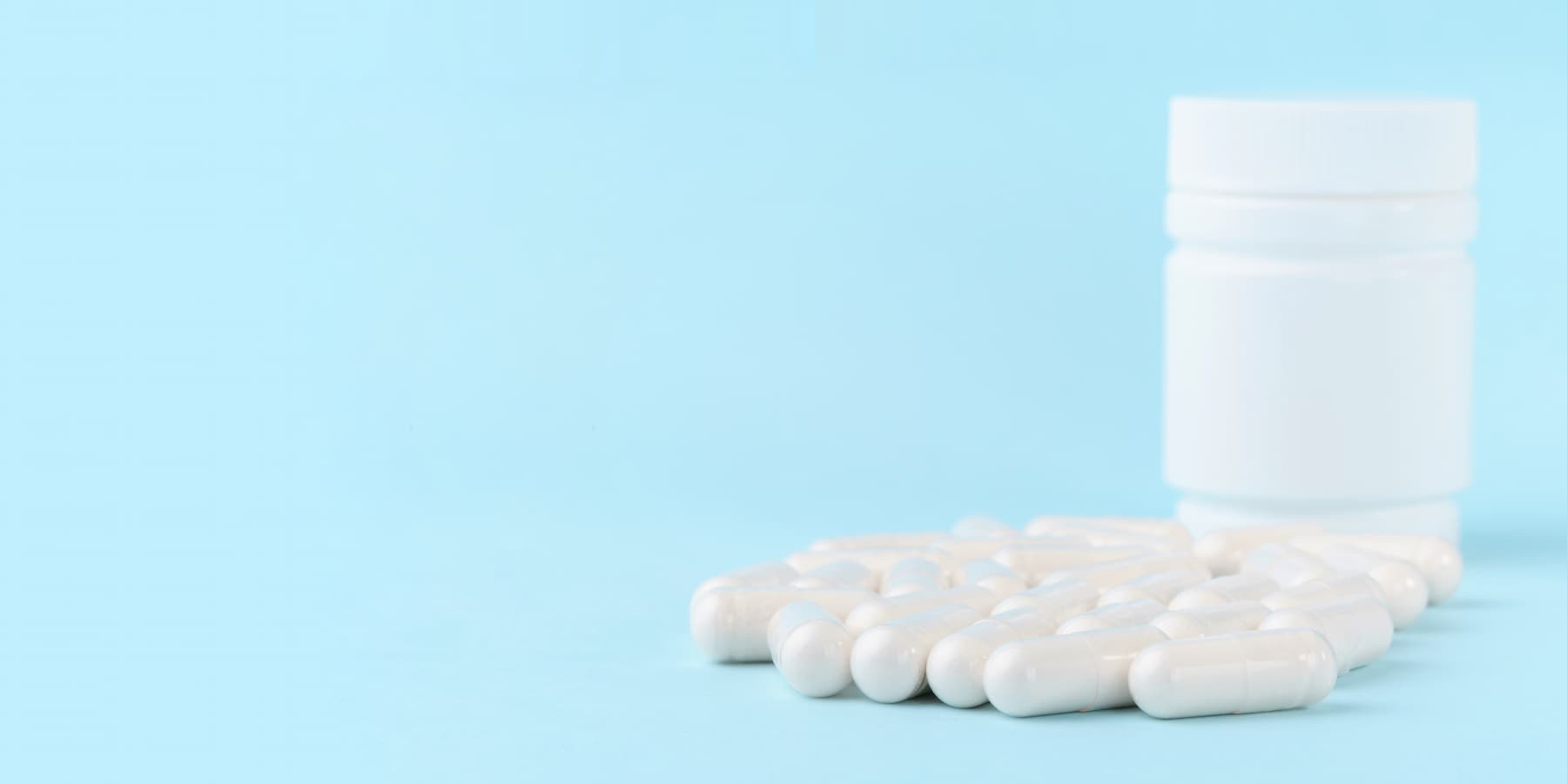
Chondroitin helps the joints and other elements of the body.
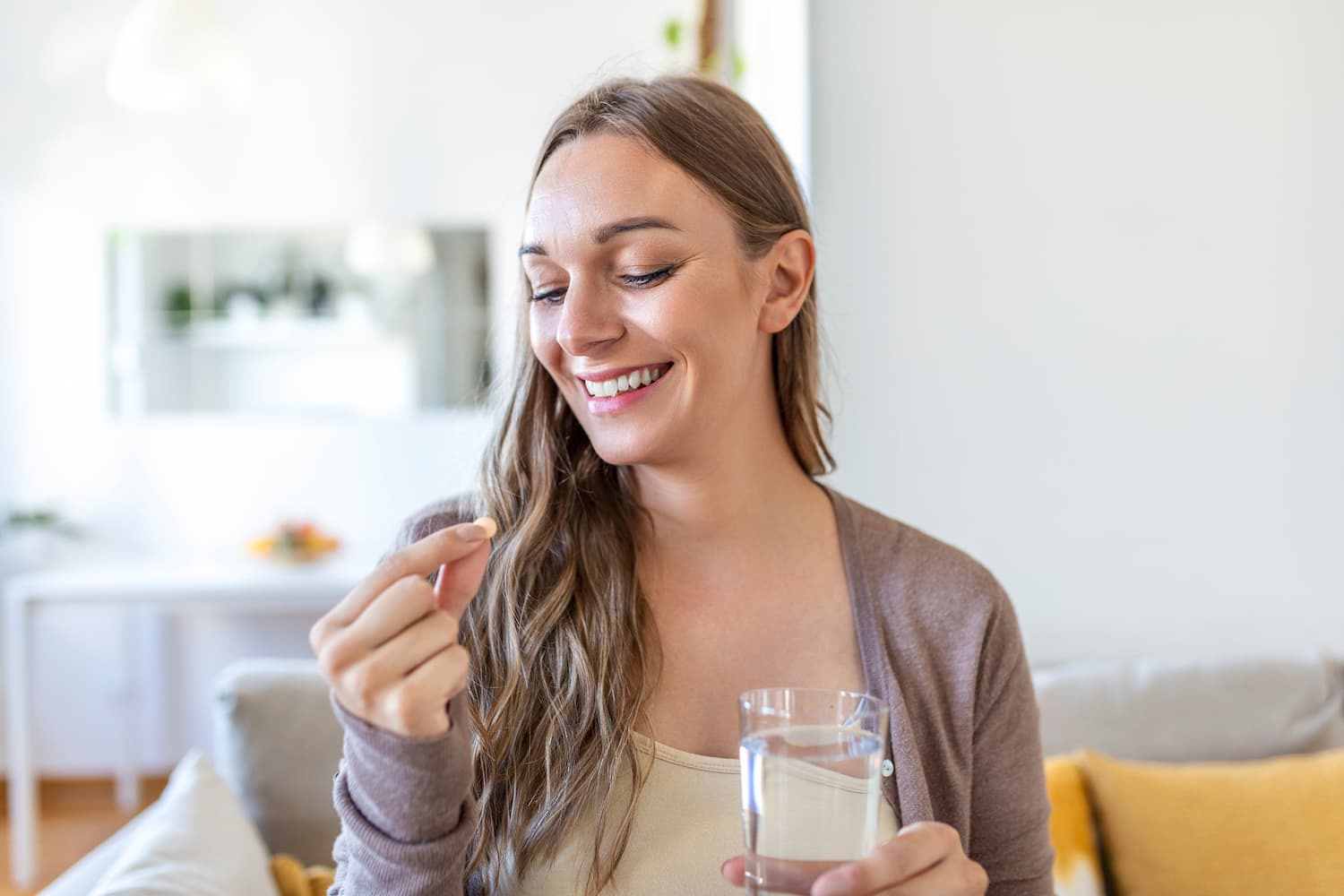
Glutathione is one of the most potent antioxidants for supporting the body's health. Find out how it works and where to get it from.

See why hip joints hurt and how to treat their ailments.

